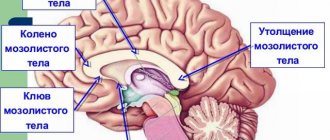Transient personality disorder is a mental disorder characterized by its short-term course. This condition is characterized by a mismatch in the personality structure; it mainly manifests itself in adolescents and emotionally unstable people. This mental pathology is a sharp deviation of behavior from generally accepted norms due to a distorted perception of real events.
A disorder can develop due to excessive stress or moral shock; it occurs over different time periods, most often from 1 day to 1 month. The disorder does not belong to the category of severe mental pathologies and does not cause persistent changes in consciousness and perception in the patient. With timely initiation of treatment, the symptoms of the disease quickly subside, and the patient returns to a normal lifestyle.
Types of Personality Disorders
Scientists and psychologists have established the fact that most of the registered cases of mental disorders occur among residents of large cities, while rural residents are more emotionally stable and mentally healthy.
The age of high technology involves an excessive burden on the human body, both moral and physical. These negative impacts can radically influence a person’s psyche and lifestyle, which leads to mixed mental states (they give rise to fears and phobias) - they are diagnosed as transient disorders.
Any personality disorder classified as transient has a number of distinctive features that deviate in behavior from generally accepted norms. There are no right and wrong personality types, there are only conditions for their development and transformation into successful and harmonious, or depressive and depressing manifestations. Personality disorders are divided into the following types:
- dependent - attachment to a person performing the role of a guardian and shifting responsibility for the actions committed onto him;
- avoidant - people prefer to live alone, after unsuccessful attempts to create relationships and disappointments;
- passive-aggressive - a person craves freedom of action, but cannot cope with it;
- paranoid – distrust of other people;
- obsessive-compulsive – criticizing the behavior of other people;
- antisocial – directed against people around you;
- narcissistic – admiring one’s own person;
- schizoid – involving complete isolation;
- histrionic – an obsessive habit of making contact with unfamiliar people, excessive vigilance.
As a disorder progresses, disturbances occur in one or several areas of the body - emotions, thinking, perception, behavior, relationships with other people. The overall picture of the perception of the world is distorted, a person changes his own principles, but does not rethink his values.
Why does it happen?
Transient psychotic disorder is most often the result of prolonged exposure to stressful situations, as well as a one-time experience of severe nervous shock. The following reasons can cause this condition:
- Daily stressful situations.
- Experiences during divorce proceedings or a break in a relationship with a loved one.
- Constant long, exhausting trips.
- Losing a loved one, separation from him for a long time.
- Significant financial loss, the need to repay a large loan amount in an unfavorable financial situation.
- Constant failures in your personal life - the inability to build relationships or start a family.
- Staying in territory where military operations are taking place.
- A sudden change of residence or other significant unplanned changes in life.
Transient partial personality disorder occurs more often in women, as well as in people whose parents had similar symptoms.
Factors that increase predisposition to disorders include drug use and alcohol dependence, as well as instability and lability of the emotional sphere.
Causes of transient disorder
In most cases of transient personality disorders, the cause is excessive stress overload and severe nervous shock. What is transient personality disorder is now clear, we need to understand the reasons for this phenomenon:
- daily stressful situations;
- forced long wait for any important decision (for example, judicial);
- divorce and litigation;
- long tiring trips;
- loss of tangible property;
- debts;
- inability to start a family;
- physical and moral violence from relatives.
Some stresses in psychology are usually called “no statute of limitations”, since these traumatic situations can haunt a person throughout his life. Transient disorders are spontaneous in nature, but they recur regularly. It is for this reason that processes of dysfunction not only of the mental sphere, but also of a psychosomatic and autoimmune nature are launched.
What it is?
Acute and transient psychotic disorders in the modern international classification of diseases ICD-10 have code F23 and are characterized by a short-term course - from 1 day to 1 month.
At the same time, a person experiences a change in behavior and perception of reality , which, however, is not irreversible and does not cause irreversible changes in consciousness - the symptoms go away with prescribed treatment or over time on their own.
Most often, transient personality disorder occurs in adolescents , as well as in emotionally unstable adults.
This mental disorder is not classified as severe, but its diagnosis can only be confirmed over time, since its symptoms may be harbingers of more serious mental illnesses.
Symptoms of a transient disorder
Signs by which a transient form of personality disorder can be identified:
- delusional states - delusions of persecution, exaggeration of one's own merits, depressive psychosis - rarely;
- hallucinations are short-lived, unlike manifestations of a schizoaffective state;
- disruption of orientation – spatial and temporal;
- reduction of criticism;
- affective state;
- disorders of thinking processes - distortion of judgments, haste in taking important steps, inconsistency in actions and thoughts;
- absent-mindedness.
In most cases, with a transient disorder, not a whole series of symptoms listed are observed, but just one. The manifestation of several signs at the same time may indicate the progression of the disorder and the transition of the pathology to a more complex form, distinguishing a serious mental illness.
Symptoms and signs
Individuals with an unstable emotional background are prone to transient personality disorders. In this case, a person experiences a violent reaction to a relatively weak external stimulus. The mood changes for any reason, even the most insignificant.
The situation worsens in long-term stressful situations with the constant presence of negative external stimuli or with significant emotional experiences.
A person can flare up for any reason that provokes an outburst of emotions. This usually manifests itself noticeably in intra-family conflicts, when quarrels often escalate into violent acts against family members.
This tendency can manifest itself in behavior even in childhood. A child of an impulsive type, prone to transient disorders, even in preschool age may experience a strong feeling of anger, expressed in an angry cry, an aggressive reaction to all kinds of prohibitions or restrictions.
They often experience increased physical activity, they are capricious, and easily irritated.
They also tend to often experience an angry and gloomy mood, and often conflict with peers.
In adulthood, people of the impulsive type may experience problems in professional teams, which can lead to frequent job changes.
In psychotic disorders, a person of the impulsive type exhibits a sharply negative reaction to any obstacles in achieving goals. In this case, a person is capable of committing illegal actions in an affective state, especially when intoxicated.
A child of the borderline type is characterized by constantly fluctuating self-esteem, changeable impressions of the world around him, fickle aspirations and a low ability to resist the opinions of others.
These people are easily suggestible and quickly come under the influence of the society in which they find themselves, including those with asocial norms.
They are also prone to strong attachment to loved ones, on this basis strong feelings, suffering and conflicts can arise, and suicidal blackmail can be used.
People of the borderline type have highs, during which they feel high spirits, an acute sense of the world around them, and at this time they experience an increase in performance. However, such periods may be replaced by a depressed state.
In general, individuals of this type adapt quite well to a new situation, and are even prone to sudden changes in their personal and professional spheres.
After the changes, they can achieve success professionally and improve their lives.
As a rule, upon reaching 30-40 years of age, emotional lability smoothes out, which reduces the occurrence of transient personality disorders.
Symptoms that can help identify a person as having a transient personality disorder:
- The presence of delusional ideas of persecution, as well as high or excessively low self-esteem.
- Brief auditory, visual, and taste hallucinations.
- Disorientation in space or time – time can subjectively slow down or speed up, resulting in disorientation in space.
- Attention disorder is the inability to concentrate on the same tasks for a long time, weakening control over the situation.
- Affective states are uncontrollable, antisocial behavior against the background of strong emotional arousal.
- Violation of thought processes - inadequate hasty decisions, illogical conclusions, inconsistent actions and incorrect conclusions in certain situations.
With transient personality disorders, it is not necessary that the entire spectrum of symptoms described will not be observed - only one of them may be manifested.
On the contrary, the simultaneous presence of several of the above symptoms may indicate more serious mental disorders.
Differential diagnosis
In order to distinguish a transient disorder from more serious pathologies, such as schizophrenia, schizoaffective disorder, a certain time period is needed, at least six months. The patient is monitored over time, after which suspicions of concomitant pathologies are finally removed. The diagnosis of a transient disorder is made based on the following differences from more serious pathologies:
- the onset of the disease is acute, occurring against a background of delirium, hallucinations and incoherent speech (these manifestations can be combined);
- problems with attention, which may be caused by lesions in certain areas of the central nervous system;
- there are no signs of prolonged depression or manic syndrome;
- the mental disorder was not provoked by the use of psychotropic or narcotic substances, or large doses of alcohol;
- During additional examination techniques, no metabolic disorders affecting the function of the central nervous system and brain were identified.
For differential diagnosis, ultrasound of the neck vessels is extremely important, since it is necessary to exclude the influence of atherosclerosis. No less valuable in diagnosing transient disorders are neuroimaging techniques, for example, MRI.
Treatment
Drug therapy for such disorders involves the prescription of drugs that reduce intoxication, as well as antipsychotics. Doses of medications are selected individually; in most cases of the disease, medium and low doses are used, although some situations require the maximum amount of drugs.
Most often, doctors combine Aminazine with Haloperidol, but taking these drugs does not only mean getting rid of an acute condition. In many cases, transient disorders have the ability to relapse, which requires the prescription of these medications for a long course, for several weeks after the end of the main therapy. It is preferable to take medications in the evening.
Psychotherapy is an important point in the treatment of transient disorders. Methods are selected not only those that cope with acute conditions, but also those that identify the causes of the disorders that have arisen - these are psychoanalysis, individual and group cognitive psychotherapy.
After undergoing appropriate treatment, individuals who suffered from a transient disorder can serve in the army; in some cases, such employees are marked “unfit” or “qualified with restrictions” in their personal files. Sometimes, when the condition worsens, such patients are discharged early and treated in an inpatient or outpatient setting. But in most cases, such a pathology does not entail a recall from military service.
It must be remembered that transient disorder is a mild degree of mental disorder, however, one should not treat it irresponsibly. If the diagnosis is made in a timely manner and treatment is started immediately, then the therapy usually quickly produces positive results, and not a trace remains of the pathology. If symptoms are ignored, the disease will progress, developing into more complex forms such as schizophrenia and affective states.
Author of the article: Ermakova Marina Leonidovna, practical psychologist, specialist in developmental psychology
Is it possible to drive a car and serve in the army?
As a rule, a transient personality disorder is not a reason for refusal to undergo military service.
Usually it is given as o or “fit with restrictions” - the decision is made individually, taking into account the symptoms.
The same applies to the decision to issue a driving license. If the disorder is not episodic, the person may be able to obtain a driving license.
As with every disease, with transient personality disorder it is important to promptly detect its symptoms and get help from a specialist in order to exclude disturbances in the functioning of the central nervous system in the future under similar circumstances, otherwise psychotherapy for the disorder will be complicated.
About psychotherapy for personality disorders in this video:
Our interesting VKontakte group:










